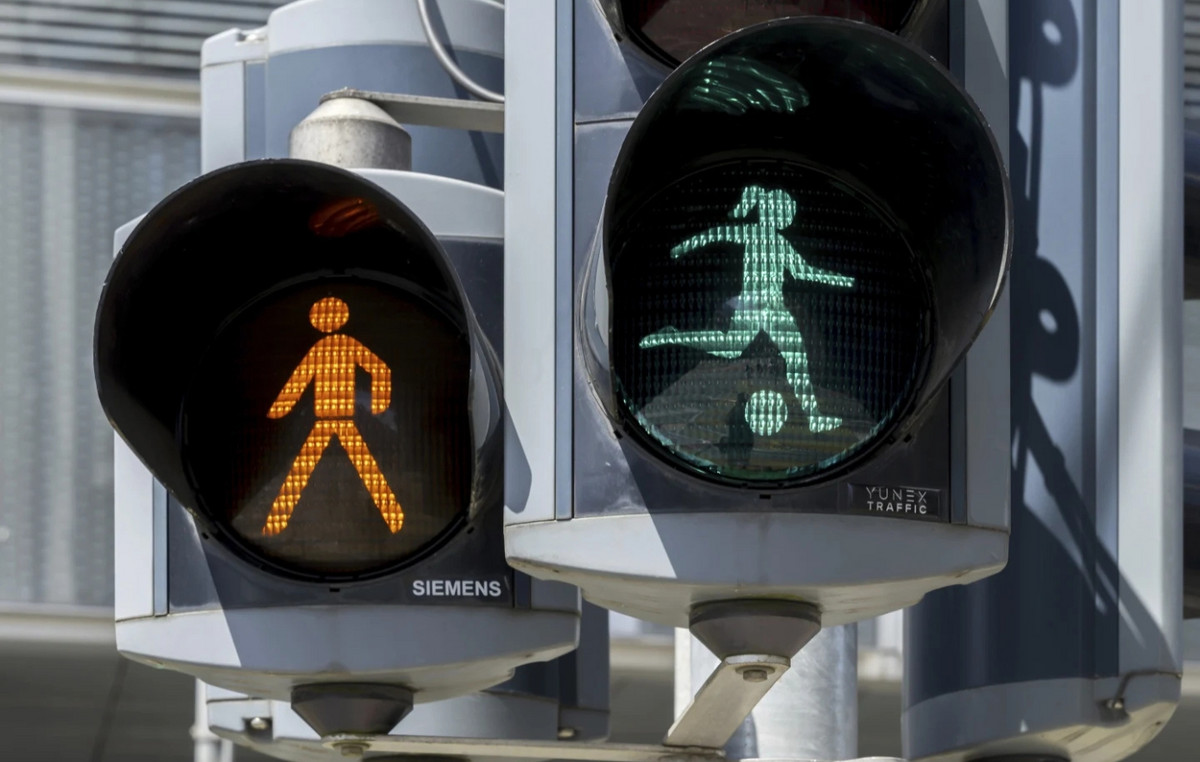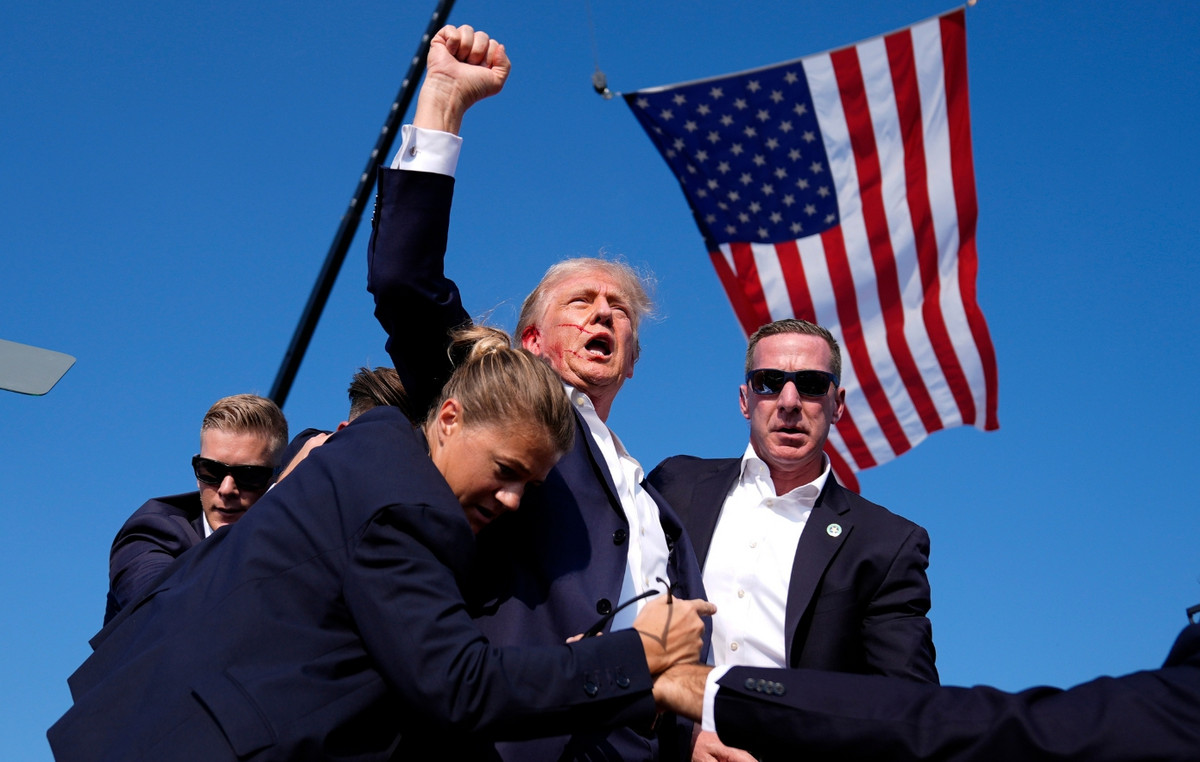The President of the United States, Joe Biden, will make a call with Russian President Vladimir Putin this Tuesday (7), in a meeting that is expected to have consequences for the two leaders amid escalating tensions between Russia and Ukraine.
According to a preview of the White House call, “Leaders will discuss a range of topics in the US-Russia relationship, including strategic stability, cyber and regional issues.
Biden will underscore US concerns about Russian military activities on the Ukrainian border and will reaffirm US support for Ukraine’s sovereignty and territorial integrity.”
Kremlin spokesman Dmitry Peskov said on Monday (6) that the talks between Biden and Putin will take place in a secure video call “behind closed doors”.
“There will be no live broadcast. I think we will show the beginning of the meeting. The beginning will be broadcast, but the entire meeting will be held behind closed doors,” he said, according to Russian state news agency Tass.
“We believe that it will be a sufficiently extensive and long videoconference, carried out through a secure communication channel. It is expected to be quite long,” added Peskov.
The two leaders attended a summit in Geneva last June. The last publicly known call from both of them was made in July.
The day before the US-Russia call, the Pentagon confirmed that it continues to observe the “additional military capability” of Russian forces along the country’s border with Ukraine.
“What we continue to see is the addition of additional capabilities made by President Putin, additional military capability in the western part of his country and around Ukraine,” said Pentagon spokesman John Kirby.
Russia has set up supply lines, including medical and fuel units, that could sustain a protracted conflict if Moscow chooses to invade Ukraine, they told the CNN two sources familiar with the latest intelligence assessments.
And recent US intelligence findings estimate that Russia could launch a military offensive in Ukraine in a matter of months, as it accumulates up to 175,000 troops along the border.
In recent days, US officials have pondered whether they should issue far-reaching sanctions against Russia to prevent Putin from launching an invasion of Ukraine.
They would be new actions against members of Putin’s inner circle and against Russian energy producers, and a potential “nuclear option”: disconnecting Russia from the SWIFT international payment system used by banks around the world.
Officials said no final decisions had been made on whether and when to apply the new sanctions, and said the Biden government is currently talking to European partners – many of whom have closer economic ties with Russia – in hopes of coordinating action.
White House Press Secretary Jen Psaki said during a Monday press conference that Biden “will be clear – as we have publicly communicated – that we have prepared a series of economic sanctions or economic options that could have a detrimental impact on the Russian economy”.
A top government official said on Monday that the US was prepared to take “substantial economic countermeasures” designed to inflict “significant and severe economic damage to the Russian economy” if Putin went ahead with a military escalation in Ukraine.
Last week, Putin said he would demand specific agreements that ruled out any further expansion of the North Atlantic Treaty Organization (NATO) to the east and the deployment of its weapons close to Russia’s borders. If Putin tells Biden on Tuesday that NATO must not admit Ukraine as a member – as he must – then Biden is unlikely to accede to the demand.
Biden made a call to European allies on Monday night to discuss “common concern about the Russian military buildup on Ukraine’s borders and Russia’s increasingly harsh rhetoric,” according to a White House statement.
Leaders present at the call, including French President Emmanuel Macron, German Chancellor Angela Merkel, Italian Prime Minister Mario Draghi and British Prime Minister Boris Johnson, called on Russia to ease tensions and expressed support for Ukraine’s sovereignty.
The White House statement says leaders “will remain in close contact, including in consultation with NATO allies and EU partners, on a coordinated and comprehensive approach.”
A top government official said this week that the US has engaged in “intensive discussions with our European partners about what we would collectively do in the event of a major Russian military escalation.”
US Secretary of State Antony Blinken spoke with Ukrainian President Volodymyr Zelensky on Monday.
A senior government official also said that Blinken would speak with Zelensky before this meeting, and Biden would contact the Ukrainian leader “in the days following the call” and have “close consultations” with him.
*With information from Kevin Liptak, Natasha Bertrand, Ellie Kaufman, Jennifer Hansler, Zahra Ullah, Anna Chernova, and Jim Sciutto of CNN
Reference: CNN Brasil
I’m James Harper, a highly experienced and accomplished news writer for World Stock Market. I have been writing in the Politics section of the website for over five years, providing readers with up-to-date and insightful information about current events in politics. My work is widely read and respected by many industry professionals as well as laymen.







